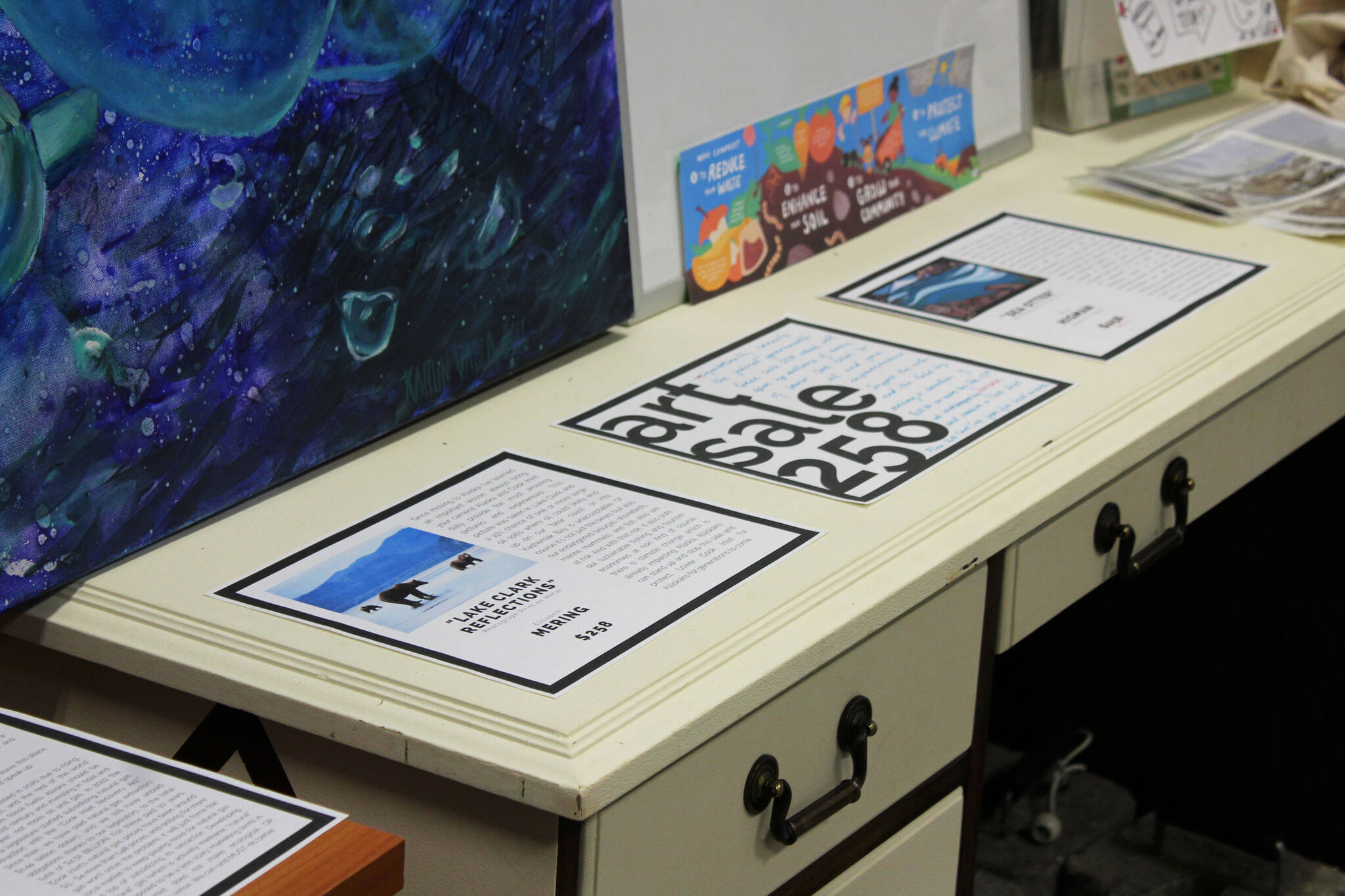An art sale hosted by Cook Inletkeeper to raise awareness about a lease sale that would open more than 1 million acres of southern Cook Inlet to oil and gas development had already exceeded its goal by Thursday afternoon.
The art sale makes available to people who donate $25.80 or more a set of 4×6 cards that feature the work of local artists, including Bonnie Bernard, Liz Mering, Amy Kruse, Valisa Higman and Kaitlin Vadla. The art sale ends at 7:59 p.m. on Monday — the same time as the public comment period for the lease sale.
Cook Inletkeeper opposes the lease sale and development of oil and gas in the area, which the organization says include salmon and halibut fishing grounds, as well as critical habitat for the Cook Inlet beluga whale.
“Having been born and raised in this area, and spending a great deal of my time exploring the land and ocean, and people’s connection to the land and ocean through my artwork, I find it hard to stomach the changes that would come with further oil and gas development in my front yard,” wrote Higman in an artist statement.
As of around 3:30 p.m. on Thursday, Cook Inletkeeper had raised $2,780 — $200 more than the organization’s stated goal of $2,580.
The proposed Lease Sale 258 includes about 224 blocks covering more than 1 million acres of seafloor between Kalgin Island in the north and Augustine Island in the south. The sale, which was delayed earlier this year after President Joe Biden paused new oil and gas leasing, would “provide qualified bidders with the opportunity to bid on OCS lease blocks in Cook Inlet to gain conditional rights to explore for, develop, and produce oil and natural gas,” according to the Bureau of Ocean Energy Management.
The agency published a draft environmental impact statement in October and is currently seeking public comment. The purpose of the statement is to analyze the potential environmental impacts the lease sale would have on “physical, biological, and human environments” in the area.
Among other things, the DEIS analyzed the potential impacts the lease sale would have air and water quality, coastal and estuarine habitats, fish and invertebrates, birds, marine and terrestrial mammals, recreation and tourism, communities and subsistence, the economy, commercial fishing and archaeological and historic resources.
The potential impact of the planned sale on living things in the area is largely contingent on whether a large spill occurs. Impacts are classified as either “negligible,” meaning little or no impact, “minor,” meaning impacts are short term and/or localized, “moderate,” meaning impacts are long-lasting and widespread, and “major,” meaning impacts are “severe.”
The impact of the sale on coastal and estuarine habitats, fish, birds, marine mammals and terrestrial mammals is expected to be minor, unless a large oil spill occurs, according to the statement. In the event of a large oil spill, the impact jumps to moderate for fish and marine mammals, and to major for coastal and estuarine habitats and birds.
For the purposes of their analysis of the lease sale, BOEM assumes there is a 19% chance of one or more large oil spills occurring during 32 years of oil and gas production, the statement said.
As of Thursday at 2 p.m., nearly 60 public comments had been submitted to BOEM. More information about the lease sale, as well as a copy of the draft environmental impact survey, can be found at www.boem.gov/ak258. More information about the “ART Sale 258” can be found at inletkeeper.org/artsale.
Reach reporter Ashlyn O’Hara at ashlyn.ohara@peninsulaclarion.com.

